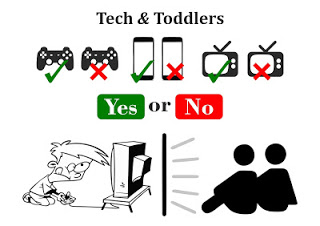Too much of anything is not good and this also stands true about exposure of Media available today to kids. I have been receiving numerous queries from parents in this regard:
- What shall be the permissible limit to play video games?
- To which extent shall we allow our kids to watch TV
- How to differentiate their viewing of educational videos from entertainment videos?
Good part about this problem is that parents at least started realizing that problem exists. Let’s discuss how to address this issue.
Rules for TV watching:
- Separate Viewing from Chewing:
If you allow your child to watch television while eating meal, it might make your child become heavily dependent upon it. Research shows that the particular combination of eating while watching something is a strong motivator to get your kids hooked to TV.
- Decide What is allowed to be watched:
Children can easily hook upon a movie or a TV series that aren’t meant for them. This is why it is imperative that you decide what is best for your child. It shall be age appropriate.
- Set a Family Time for watching TV
Have time when you and your kids can enjoy a fun family movie once in a while. This will give you the chance to interact with your kids and spend some quality time together.
- Kid’s room should not have the TV
TV does keep kids out of your way when you’re busy, but giving your kids a separate television for their rooms is simply asking for trouble. Your kids are more likely to find and watch inappropriate programs and you will not be able to control what they watch, and the amount of time they spend on the TV.
Rules for Video Games:
- Having fun with video games should only be allowed after children have taken care of other responsibilities. For example, parents are strongly advised to set a rule that video games can only be played after homework is completed (and completed with effort).
- Access to computer/video games should be viewed as an earned privilege, not an automatic right.
- Keep computers and gadgets out of a child’s bedroom. It is much easier to limit computer gaming (and monitor online activity) if computers are in open spaces or family rooms. To ensure children not getting addicted to computer games this is perhaps the first step parents should take.
- Children addicted to computer games will happily play for hours at a time. Although this can provide valuable free time for busy moms and dads, parents need to make sure that computer games are not their child’s primary activity or form of entertainment.
What’s Recommended?
- Toddlers up to 18 months old: No Screen time
- Toddlers up to 18 months to 24 months: Some Screen time with a parent or caregiver.
- Preschoolers: Not more than 1 hour a day of educational program, together with a parent or other caregiver who can help them understand what they’re watching.
- Children above 5 years: Parents should place consistent limits on screen time, which includes TV, social media and video games.
Board Games & Outdoor Games:
Encourage your child to get engaged in other activities that are more beneficial to them in both ways mentally and physically. Kids should be doing things that are intellectually enriching: playing with board games, playing with dice, playing with things that will improve their motor skills, reading skills, logics, visual ability & concentration. You need to have at least 4-5 different board games at home, 1-2 single player games and 2-3 multi-player games.
Spare time to play with your child. Cherish these moments.
Manish Sharma
Parenting Coach






